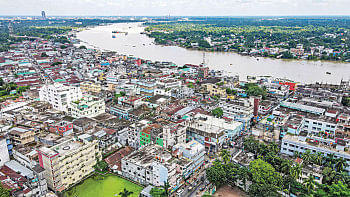93pc malaria patients from CHT: Speakers
Although the government has made a significant progress in eradicating malaria, the hilly districts of the country are still vulnerable to the mosquito-borne infectious diseases, speakers said yesterday.
They called upon the authorities concerned to put a special focus on those districts -- Rangamati, Khagrachhari and Bandarban -- for controlling malaria-carrying Anopheles mosquitoes and others to keep the country malaria free.
Speaking at a press conference, they also stressed the need for increasing mosquito control activities in urban areas, especially in the capital, as the country already experienced Chikungunya outbreak last year.
The Ministry of Health and Family Welfare and Brac jointly organised the conference at Jatiya Press Club. The programme was organised marking World Malaria Day, to be observed today.
This year's theme is -- “Ready to beat malaria”.
Addressing as the chief guest, Prof Abul Kalam Azad, director general at the Directorate General of Health Service (DGHS), said no malaria patient has been identified in 51 districts in the last few years.
“Only a few were found in the rest 13 districts. Our aim is to make the country malaria-free within 2030,” he said.
MM Aktaruzzaman, deputy programme manager of a government malaria eradication project, said around 29,247 malaria patients were identified last year. Approximately 93 percent of them were from the three Chittagong Hill Tracts (CHT) districts, he added.
Malaria control programmes could not be that much successful in the districts as most of the areas are remote and covered with a dense forest, he said.
Therefore, providing a special attention to the region is necessary to eradicate malaria, he added.
Prof Sanya Tahmina, line director of communicable disease control at DGHS; and Akramul Islam, a director at Brac; also spoke.

 For all latest news, follow The Daily Star's Google News channel.
For all latest news, follow The Daily Star's Google News channel. 



Comments